Johnnie Jackson
AFC Wimbledon, 2022-
When we got the result on the last day to secure a playoff spot, I started to believe we could do something special.
We’d been in and around the League Two playoffs for most of the 2024/25 season, and in the top three at times. Expectation had grown that the playoffs were the minimum we should get. We all felt that way and the supporters certainly did.
But the pressure was building going into the last game, because we hadn’t won in our previous four. We knew that if we didn’t get a result at Grimsby and things went against us elsewhere, we would fall out of the playoffs.

I could feel pressure building on the lads. They were starting to play within themselves, fear was creeping in. It was important we overcame that, so we tried to take the pressure off.
I spoke to people in the game I trust – people who have been there and done it – and asked for their opinions. My staff did the same. Then we came together and said: “How are we going to get the best out of these lads?”
We stripped back a lot of the tactical detail we were giving them. Perhaps at times we had been overloading them, so we tried to make it more fun. More five-a-sides, more finishing drills – the stuff players really enjoy. We dealt with shape and tactical sessions a couple of days before, but tried not to get them focusing on the game too early in the week.
“I knew it was going to take a long time to sort out”
We had fun and put competition in everything we did, including quizzes and some cash prizes. Little things like that allowed us to enjoy each other’s company. We knew that if we got the result at Grimsby, we would have another few weeks of the season. I wanted them to enjoy it.
I had taken over at Wimbledon three years before, at the age of 39, by which time I had already learned the harsh realities of management. When my playing career came to an end at Charlton in 2018, I moved into coaching, becoming a first-team coach, then player assistant-manager, before getting the manager’s job on an interim basis. After a few good results, I got the job full time.
That was December 2021, but at the end of the season I was sacked. Only a few days later I got a call from the Wimbledon chairman, asking if I’d be interested in meeting to discuss the manager’s role. It was well-timed, because I was disappointed that I wasn’t going to have the opportunity to see it through at Charlton and wanted the next opportunity to come quickly. I was excited to go and meet him, and delighted to be named Wimbledon manager two weeks later.
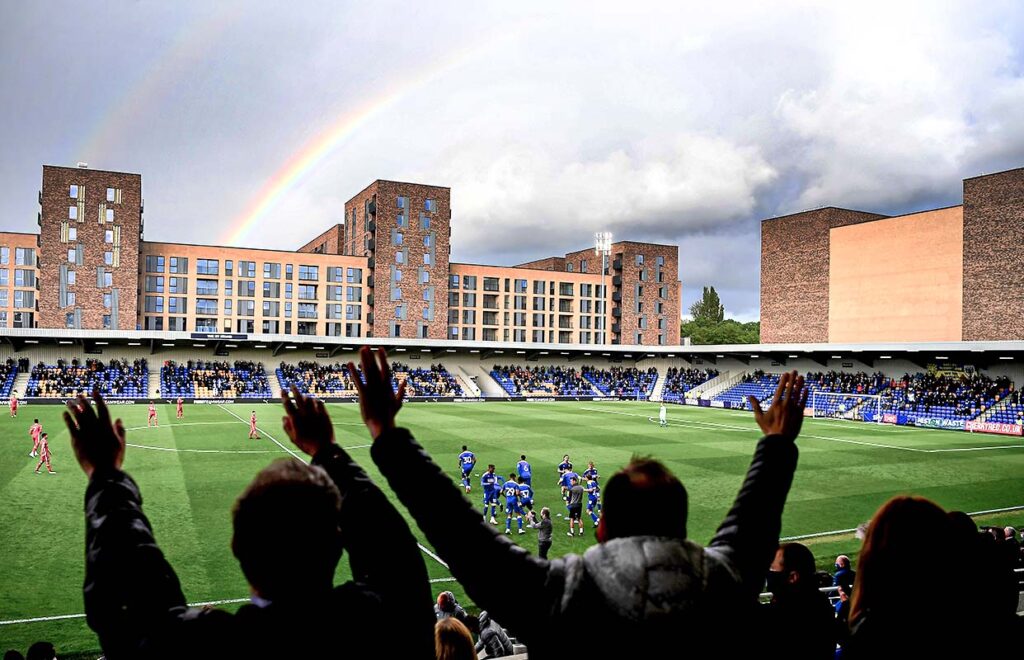
It was a wonderful opportunity to get straight back in, with the history Wimbledon have and the new stadium they had built. But they had just been relegated from League One, so I knew there would be challenges. They’d been on a really difficult run, ending the season without a win in 27 games.
There was obviously lots going wrong on the pitch, but there were also things that needed to be sorted out behind the scenes. For example, there were no real recruitment strategies in place. I knew it was going to take a long time to sort out, and there would be a bit of suffering along the way.
Sure enough, the first season proved really difficult. It took us three or four windows to really start changing the squad around. The opportunity to get straight back to working with players was one that I relished, though. One of the attractions was that the chairman allowed me to manage the way that I wanted, overseeing everything.
“They were big moments for me, because it could have gone the other way”
I inherited a young squad and felt that one of the reasons they were relegated was a lack of experience. So we brought in players like Alex Pearce, who’d been there and done it. He was a steadying influence at that time. Then there was Harry Pell, who played for the club before and was keen to come back. It was about trying to get a more balanced squad – not too many older players who couldn’t run so much, but not a team full of kids without the experience to weather difficult moments.
That first season started pretty well. We were getting some good results, playing good football. At the end of December we were two points off the playoff places, but lost key players for long periods – including Pell and Pearce. The squad was thin and it became difficult through the winter. We were competing in every game without picking up wins – losing by the odd goal or drawing. We started falling away, and at one stage we were half looking over our shoulder, wondering what the outcome might be.
Football is a results business, so naturally I came under a lot of pressure. You certainly find out more about yourself when you are being beaten and getting stick. During that period, as a staff we had to dig in and be resilient, believing in what we were doing. If you want to be a football manager with any longevity, you need resilience.
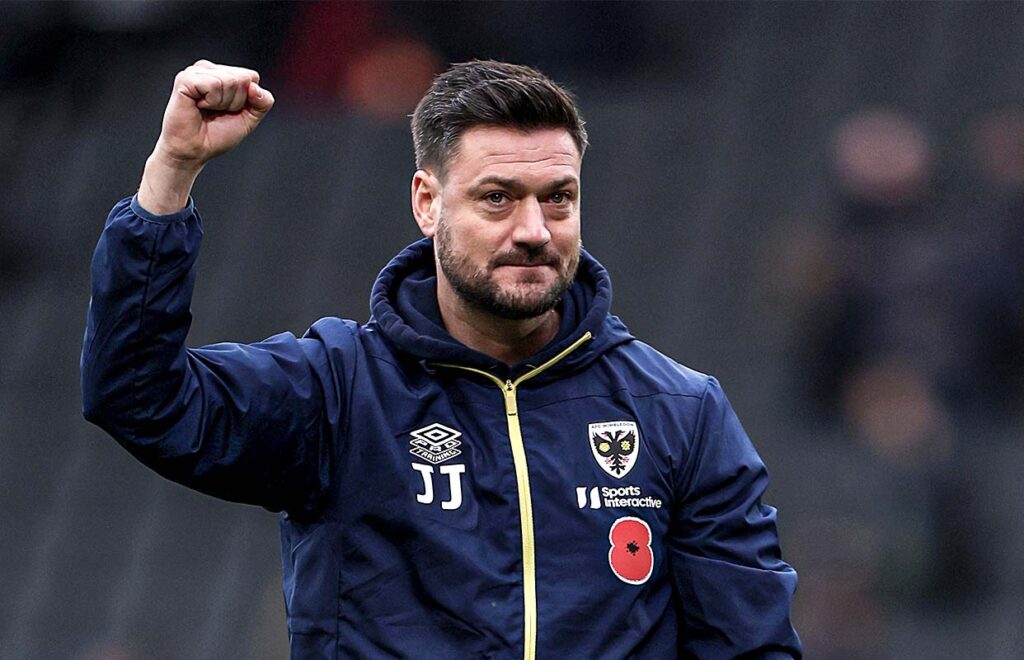
They were big moments for me, because it could have gone the other way. People get impatient and panic – at a lot of football clubs you’d lose your job. There were circumstances around the results, though, including injuries and some things happening off the pitch. The decision-makers at the club could see that it was a bit like I was managing with one arm tied behind my back. When I needed it, they really supported me through that first season.
My own honesty with the players never changed. They were trying to implement what we wanted, but perhaps just weren’t capable. It was important that I stuck by them in those moments and didn’t hang them out to dry. Everything I said to them stayed in-house. Sometimes you end up becoming the fall guy, but it was important that when I spoke with the media, I tried to keep a brave face.
I learned lessons about the league as well. I hadn’t worked in League Two for a long time, so it took me a while to really understand it. And it took me a while to understand the club I was at. When I first came into Wimbledon, we probably overplayed at times – really pretty football, with a lot of passes around the back and my goalkeeper getting lots of touches. But there wasn’t much appetite for that around the football club from anyone, really – from the fanbase to the hierarchy.
“There were big decisions on the football side that needed to be made”
It’s okay if you’re winning, but when the wins dried up it was important that I tried something different and showed myself to be adaptable. You hear a lot about principles and sticking to your guns, but you have to be pragmatic at times in football management. The ones who last in this game – which isn’t necessarily many – are the ones who are able to adapt.
Preparing for my second season was a big rebuilding period. We strengthened and moved out some players I felt had been at the club too long. There were difficult conversations I had with lads who had been at the club for a while – good lads who were absolutely spot on with their attitude. I never had issues with any players on that front, but there were big decisions on the football side that needed to be made.
We had already signed Ali Al Hamadi in the January window, and he was a revelation for us. He scored goals and we were able to build a dynamic team around him. The dressing room had also been lacking leaders and character, so I brought in Jake Reeves. He is a real leader who had been at the club before and became captain.

It was important that we improved on the season before. Would we go from finishing 21st to getting promoted? It was a big ask, but we fought hard in the 2023/24 season, flirted with the playoffs and took it down to the wire.
In the end we finished 10th, five points outside the playoffs. We’d lost Al Hamadi in January 2024, and he might have been the difference. But Ipswich came in with a big bid and it was one the club had to accept. As Wimbledon manager you understand it is a fan-owned club, built on their own finances, so it is important to look after it. I understood the decision, but it is still difficult to lose your best players in those moments.
Nonetheless, we’d had a much improved season. We won 4-0 on the last day and there was a positive feeling. Everyone could see how far we had come on the pitch. There were big strides behind the scenes as well, including bringing in a director of football, Craig Cope. He has dealt with a lot off the pitch that has helped me focus on coaching and managing, and together we have overseen recruitment. Everything was improving at the football club, including the training ground, where we brought in a chef and improved nutrition.
“The club has always been an underdog”
Going into the 2024/25 season, I felt that if we could improve again, it should take us into the playoffs. We all wanted to finish in the top three, but considering our resources and budget, realistically getting into the playoffs would be a massive success.
Recruitment was again important: bringing in the right types in the right areas, keeping hold of what we had, and adding quality. Bringing in goalkeeper Owen Goodman from Crystal Palace turned out to be a masterstroke – he kept 25 clean sheets in our promotion season. We had also signed Joe Lewis permanently in January 2024 and built a defensive unit around him. Building from the back – trying to have a solid foundation – was always going to be how we did it.
Then we looked to add a sprinkling of quality with players such as Marcus Browne, who came in January 2025. Losing Al Hamadi had probably made us less of an explosive team, but we were more cohesive. We became more than the sum of our parts, very well drilled defensively and hard to beat.
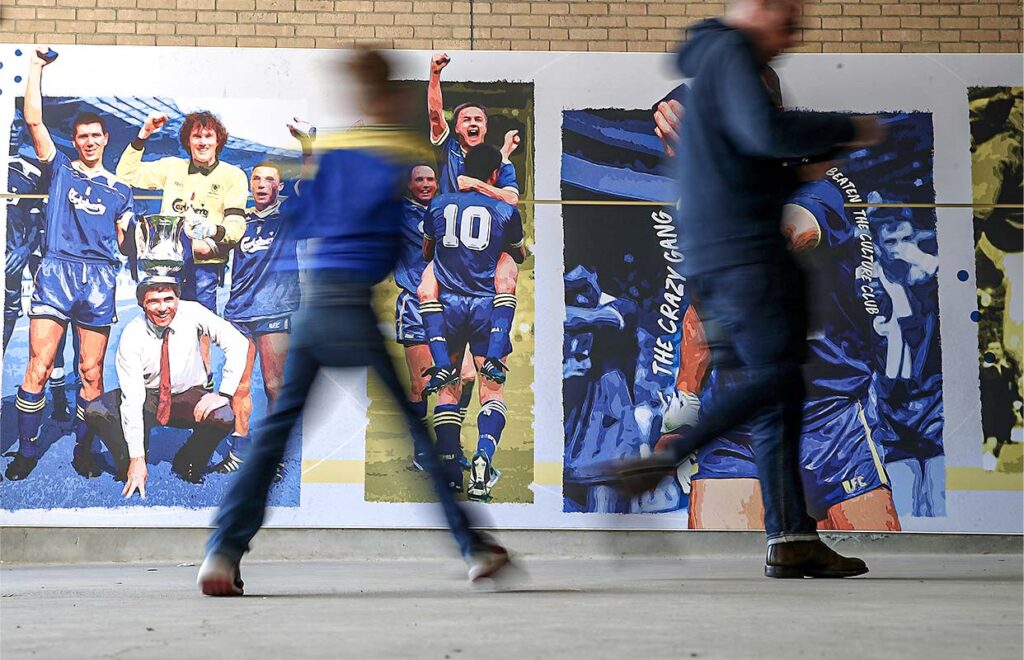
It was built through hard work on the training pitch, getting a great bunch of lads together who wanted to work hard every day. Before talking to them about tactics, we talked about running, blocking, tackling and fighting. That is the Wimbledon way. The club has always been an underdog, ever since they came through non-league to end up in the Premier League. And, of course, when the Crazy Gang beat Liverpool’s ‘Culture Club’ in the 1988 FA Cup final.
When the club relocated, AFC Wimbledon had to reform, so it has always been an underdog story. We pride ourselves on this and recruit around it. We try to get lads in who have a point to prove and the bit between their teeth. Then we try to mould and coach them into what we want, but it is vital we recruit the right types.
As the 2024/25 season progressed, we went on a really good run from November through to February, losing only one game in 17. I was able to keep my team selection consistent in that period. In previous years we’d had a lot of injuries, but we made big improvements in the medical department. We also recruited players with a history of playing a lot of games – being robust, able to train and play through difficult periods.
“We really felt we were going there with a huge chance of pulling it off”
At the same time we kept the lads grounded, because we knew a tricky period would come. Sure enough, it did. In a 46-game League Two season, it is never going to be plain sailing. From being on a really good run, we went on a not-so-good one that we had to ride out.
And so we came to that final game at Grimsby. I called it “a quarter final” and it definitely felt like a significant hurdle cleared. Afterwards, in the playoffs, I didn’t see nervousness in the players like I’d seen in the build-up to the Grimsby game. In fact, they embraced the challenge.
With two really professional performances against Notts County, we got through to the final. I wanted the players to enjoy the day at Wembley against Walsall, but we weren’t going there to make up the numbers. We really felt we were going there with a huge chance of pulling it off – the players truly believed.
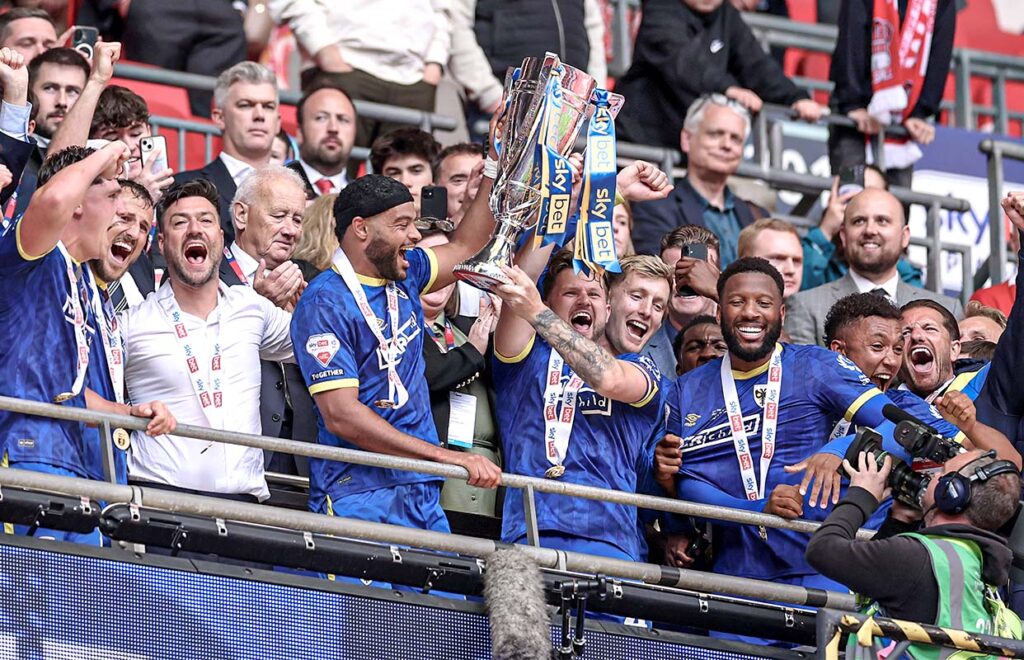
To go to Wembley and implement the game plan that we did, limiting a really good team like Walsall and giving up very little defensively, was credit to the players. It was always going to be a tight game, and playoff finals are often decided by small margins. But we had the better quality on the day.
We had gone from a run of one win in eight games to winning our last four in a row – all 1-0 – to seal promotion. We hadn’t won four in a row all season, but something definitely happened among the group, and the players have to take full credit for that. They took on board the information I was giving them, and whatever I asked they threw themselves into it and reaped the rewards.
When the final whistle went, you get that moment of relief. It felt like three years of graft, as well as some heartaches and pain, had all been worth it. It also felt like vindication that we were on the right path. I am sure it was also vindication for the decision-makers at Wimbledon who had stuck with me, showing faith during that early difficult period. To repay that was hugely satisfying.
“One of my mantras is to strive for constant improvement”
It was a very proud moment to get my first promotion as a manager. But seeing how happy the players were, my staff, everyone’s friends and family, and of course the fans, was a reminder why I do it. Because you don’t get many days like that.
Now we have been promoted to League One, it is important to keep moving this club forward. One of my mantras is to strive for constant improvement, and we are going to have to do that again to compete. We are going up to a level where we will be even more of an underdog.
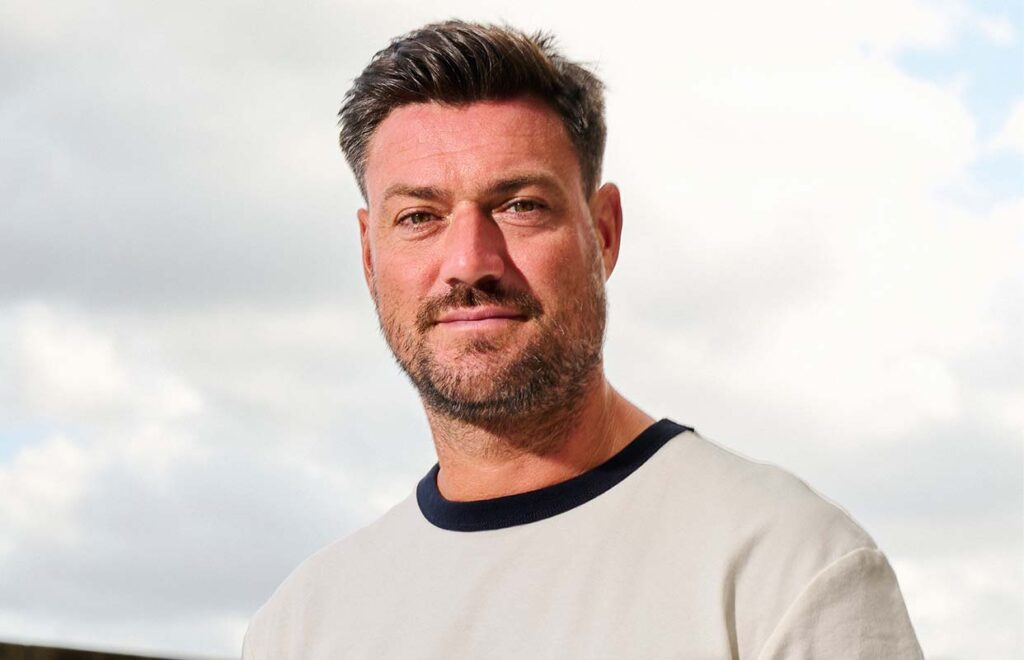
League One will be an even tougher test of our resources, so one of my main focuses has been trying to keep as many of this group together as possible. We’ve lost a couple of players, which is natural in football, but I want to keep pushing forward. This club always surprises people, and we want to continue to do that.
On a personal level, I want to manage at the very top, in the Premier League one day. Getting success last season is the first step, but I realise as a manager I haven’t done anything yet. The first step was getting us into League One and let’s see where that takes us. As professionals, the players, me and my staff all want to operate at the highest level. That is what we are striving to do.

Johnnie Jackson


